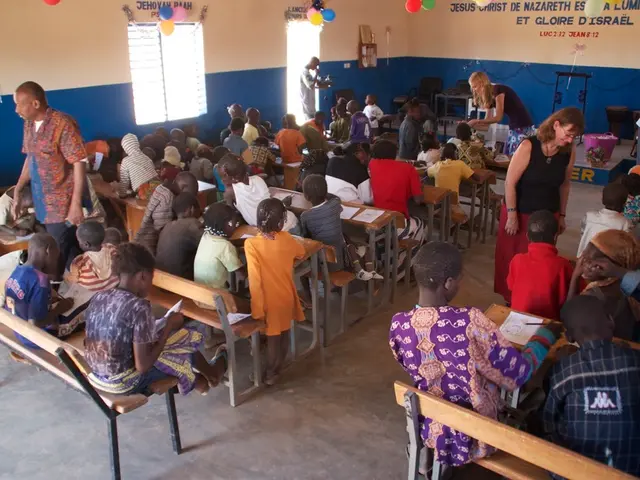In the borderlands between Israel and Lebanon, a tragic incident unfolded on a Tuesday, claiming three lives. According to the Lebanese news agency Ani, the fatalities were civilians, caught in the crossfire of what they reported as an Israeli attack in Tair Harfa. Shortly afterward, Lebanese TV station Al-Majadeen confirmed the loss of two of their journalists, Farah Omar and Rabih Maamari, in the same attack.
Far from a solitary event, the region had seen its fair share of tension since a major assault by the Palestinian group Hamas on Israel in early October. The escalating hostilities between Israeli forces and the Iranian-backed Shiite Hezbollah militia had led to repeated skirmishes.
The media spotlight on the Middle East war intensified further with the Al-Majadeen journalists' deaths, following a series of assaults that included fatal shelling in Tair Harfa. This was not an isolated incident; on the same day, an 80-year-old woman also lost her life in an Israeli strike on the southern Lebanese village of Kfar Kila. Her granddaughter sustained injuries and required hospitalization.
Since the beginning of the conflict, there have been numerous reports of human rights violations. Cross-border attacks have become a common occurrence, with Israeli troops and the Hezbollah militia engaging in a dangerous game of retaliation. Civilians have borne the brunt of the violence, including journalists like Reuters photojournalist Issam Abdallah, who fell victim to an Israeli artillery strike on October 13. The conflict has claimed over 3,961 lives, including 736 women and 248 children, according to the Lebanese Health Ministry's records.
The intentional targeting of journalists and medical workers is a war crime, and both sides have faced accusations in this regard. Human Rights Watch reports blame the Israeli military for deliberate or indiscriminate attacks, while Reporters Without Borders and the Council of Europe charge the Israeli military with deliberately targeting journalists in missile strikes. Hezbollah, too, has been accused of war crimes after its attacks in September 2024, which resulted in significant damage and civilian casualties.
Amidst this chaos, a fragile ceasefire has been established. While tensions remain high, the Israeli military has even constructed semi-permanent Forward Operating Bases (FOBs) near the Blue Line, fueling speculation about its intentions to stay beyond the February 18 withdrawal deadline.
The aftermath of these escalating attacks has resulted in the displacement of over 1.2 million people and the destruction of thousands of buildings and houses. The attacks on medical workers and healthcare facilities have further complicated the effort to provide aid to those affected.
References:
- Al Jazeera. (n.d.). Israel-Lebanon conflict: From water dispute to full-scale war.
- Reporters Without Borders. (n.d.). Israel: Journalists in médias persuing Palestinian newspapers and websites confined to jail.
- Amnesty International. (n.d.). Israel/Lebanon: Escalating Attacks Release.
- Middle East Monitor. (n.d.). Israel’s Forward Operating Bases in the Golan Heights.




